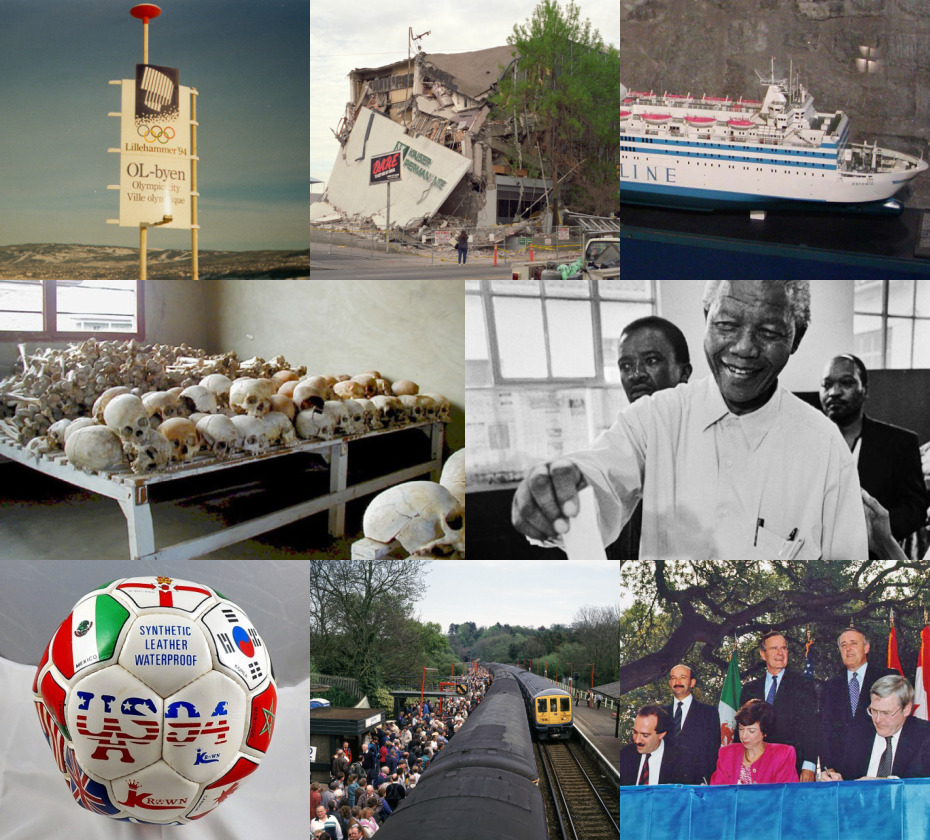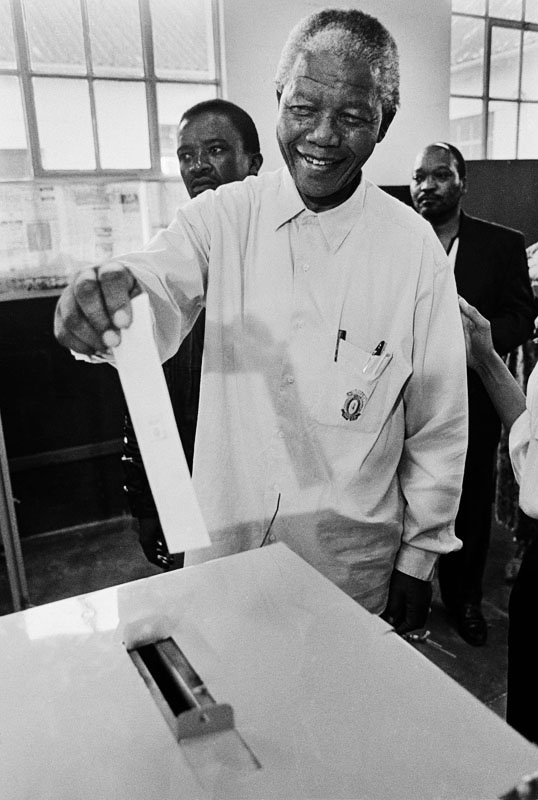|
1994 Guinea-Bissau General Election
General elections were held in Guinea-Bissau on 3 July 1994, with a second round for the presidential election on 7 August. They were the first multi-party elections since independence, and also the first time the president had been directly elected, as previously the post had been elected by the National People's Assembly. In the presidential election, the result was a victory for incumbent João Bernardo Vieira of the African Party for the Independence of Guinea and Cape Verde (PAIGC), who defeated Kumba Ialá of Social Renewal Party in the second round. In the Assembly election, 1,136 candidates ran for the 100 seats, of which the PAIGC won 62. Voter turnout in the presidential election was 89.3% on 3 July and 81.6% on 7 August. In the parliamentary election it was 88.9%.Dieter Nohlen, Michael Krennerich & Bernhard Thibaut (1999) ''Elections in Africa: A data handbook'', p467 Results President Independent candidate Carlos Gomes was supported by the Democratic Convergen ... [...More Info...] [...Related Items...] OR: [Wikipedia] [Google] [Baidu] |
João Bernardo Vieira
João Bernardo "Nino" Vieira (; 27 April 1939 – 2 March 2009) was a Bissau-Guinean politician and military officer who served as President of Guinea-Bissau from 1980 to 1999, except for a three-day period in May 1984, and from 2005 until his assassination in 2009. After seizing power from President Luís Cabral in a military coup in 1980, Vieira ruled as part of the Military Council of the Revolution until 1984, when civilian rule was returned. Opposition parties were allowed in 1991, and Vieira won a multiparty presidential election in 1994. He was ousted at the end of the 1998–1999 civil war and went into exile. He made a political comeback in 2005, winning that year's presidential election. Vieira was shot dead by soldiers on 2 March 2009, apparently in retaliation for a bomb blast at army headquarters that killed Guinea-Bissau's military chief General Batista Tagme Na Waie hours before. The military officially denied these allegations after unidentified A ... [...More Info...] [...Related Items...] OR: [Wikipedia] [Google] [Baidu] |
Carlos Gomes Júnior
Carlos Domingos Gomes Júnior (born December 19, 1949) (in Portuguese). is a Bissau-Guinean politician who was of from 10 May 2004"Young technocrats prominent in new elected government" IRIN, May 13, 2004. to 2 November ... [...More Info...] [...Related Items...] OR: [Wikipedia] [Google] [Baidu] |
Presidential Elections In Guinea-Bissau
{{disambiguation ...
Presidential may refer to: * "Presidential" (song), a 2005 song by YoungBloodZ * Presidential Airways (charter), an American charter airline based in Florida * Presidential Airways (scheduled), an American passenger airline active in the 1980s * Presidential Range, a range in the White Mountains of New Hampshire, US * Presidential Range (Green Mountains), a mountain range in Vermont, US See also * * President (other) President most commonly refers to: *President (corporate title) * President (education), a leader of a college or university *President (government title) President may also refer to: Arts and entertainment Film and television *'' Præsident ... [...More Info...] [...Related Items...] OR: [Wikipedia] [Google] [Baidu] |
Parliamentary Elections In Guinea-Bissau
In modern politics and history, a parliament is a legislative body of government. Generally, a modern parliament has three functions: representing the electorate, making laws, and overseeing the government via hearings and inquiries. The term is similar to the idea of a senate, synod or congress and is commonly used in countries that are current or former monarchies. Some contexts restrict the use of the word ''parliament'' to parliamentary systems, although it is also used to describe the legislature in some presidential systems (e.g., the Parliament of Ghana), even where it is not in the official name. Historically, parliaments included various kinds of deliberative, consultative, and judicial assemblies. What is considered to be the first modern parliament, was the Cortes of León, held in the Kingdom of León in 1188. According to the UNESCO, the Decreta of Leon of 1188 is the oldest documentary manifestation of the European parliamentary system. In addition, UNESC ... [...More Info...] [...Related Items...] OR: [Wikipedia] [Google] [Baidu] |
1994 In Guinea-Bissau
The year 1994 was designated as the "International Year of the Family" and the "International Year of Sport and the Olympic Charter, Olympic Ideal" by the United Nations. In the Line Islands and Phoenix Islands of Kiribati, 1994 had only 364 days, omitting December 31. This was due to an adjustment of the International Date Line by the Kiribati government to bring all of its territories into the same calendar day. Events January * January 1 ** The North American Free Trade Agreement (NAFTA) is established. ** Beginning of the Zapatista uprising in Mexico. * January 8 – ''Soyuz TM-18'': Valeri Polyakov begins his 437.7-day orbit of the Earth, eventually setting the world record for days spent in orbit. * January 11 – The Irish government announces the end of a 15-year broadcasting ban on the Provisional Irish Republican Army and its political arm Sinn Féin. * January 14 – U.S. President Bill Clinton and Russian President Boris Yeltsin sign the Kremlin accords, which ... [...More Info...] [...Related Items...] OR: [Wikipedia] [Google] [Baidu] |
1994 Elections In Africa
The year 1994 was designated as the " International Year of the Family" and the "International Year of Sport and the Olympic Ideal" by the United Nations. In the Line Islands and Phoenix Islands of Kiribati, 1994 had only 364 days, omitting December 31. This was due to an adjustment of the International Date Line by the Kiribati government to bring all of its territories into the same calendar day. Events January * January 1 ** The North American Free Trade Agreement (NAFTA) is established. ** Beginning of the Zapatista uprising in Mexico. * January 8 – ''Soyuz TM-18'': Valeri Polyakov begins his 437.7-day orbit of the Earth, eventually setting the world record for days spent in orbit. * January 11 – The Irish government announces the end of a 15-year broadcasting ban on the Provisional Irish Republican Army and its political arm Sinn Féin. * January 14 – U.S. President Bill Clinton and Russian President Boris Yeltsin sign the Kremlin accords, which stop the prep ... [...More Info...] [...Related Items...] OR: [Wikipedia] [Google] [Baidu] |
Guinean Civic Forum–Social Democracy
The Guinean Civic Forum–Social Democracy () is a political party in Guinea-Bissau. History The party was established by Antonieta Rosa Gomes on 23 February 1991 in Brazil. It was legalised on 31 March 1994, and contested the 1994 general elections. Gomes was the only female candidate, receiving 1.8% of the vote and finishing last. In the parliamentary elections the party received just 0.1% of the vote and failed to win a seat in the National People's Assembly.Peter Karibe Mendy (2013) ''Historical Dictionary of the Republic of Guinea-Bissau'', Scarecrow Press, p181 In the 1999 general elections the party did not run for the Assembly, but put forward Gomes as their presidential candidate. Again the sole female candidate, she finished in last place with 0.8% of the vote. The 2004 parliamentary elections saw the party receive 1% of the vote, but again failed to win a seat. Gomes remained the party's candidate for the 2005 presidential elections and the only women running, bu ... [...More Info...] [...Related Items...] OR: [Wikipedia] [Google] [Baidu] |
Antonieta Rosa Gomes
Antonieta Rosa Gomes (born May 4, 1959, in Bissau) is a Bissau-Guinean politician. Founder and leader of the Guinean Civic Forum–Social Democracy, Gomes was educated in Brazil, receiving her law degree from the University of São Paulo. She served under Kumba Ialá as the Minister of Justice and the Minister of Foreign Affairs at various points. She stood as a candidate in the presidential elections of 1994, 1999, and 2005 2005 was designated as the International Year for Sport and Physical Education and the International Year of Microcredit. The beginning of 2005 also marked the end of the International Decade of the World's Indigenous Peoples, Internationa .... She was the first and only woman to do so, but she never received more than 2% of the vote. Her ouster as Minister of Foreign Affairs is considered a major factor in the events leading to the 2003 coup d'état which ousted Ialá from power. In 2004, she served as president of the commission of the Supreme Tribu ... [...More Info...] [...Related Items...] OR: [Wikipedia] [Google] [Baidu] |
United Social Democratic Party
The United Social Democratic Party (, PUSD) is a centre-left social democratic political party in Guinea-Bissau. History The party was established on 30 May 1991 and legalised on 6 June 1992.Peter Karibe Mendy (2013) ''Historical Dictionary of the Republic of Guinea-Bissau'', Scarecrow Press, p328 Victor Saúde Maria was its initial leader. In the 1994 general elections Saúde Maria finished seventh in the presidential elections with 2% of the vote, and the party failed to win a seat in the National People's Assembly. Saúde Maria died on 25 October 1999, and a subsequent leadership crisis prevented it from contesting the 1999 general elections. Former prime minister Francisco Fadul was elected as the president of the PUSD on 18 December 2002 at a party convention in Bissau.''Political Parties of the World'' (6th edition, 2005), ed. Bogdan Szajkowski, page 272. In the 2004 parliamentary elections the party received 17.6% of the vote and won 17 out of 100 seats in the Assembly ... [...More Info...] [...Related Items...] OR: [Wikipedia] [Google] [Baidu] |
Victor Saúde Maria
Victor Saúde Maria (27 April 1939 – 25 October 1999) was a Guinea-Bissau, Bissau-Guinean politician. He was the country's first Foreign Minister (1974–1982) and then went on to be Heads of Government of Guinea-Bissau, Prime Minister from 14 May 1982 until 10 March 1984, when he fled to Portugal after a power struggle with Heads of State of Guinea-Bissau, President João Bernardo Vieira fearing summary execution after hearing President Vieira accuse him of "High Treason". Maria returned from exile in late 1990 and set up the United Social Democratic Party (PUSD) in 1992. He ran for President in 1994, placing seventh and receiving 2.07% of the vote. African Elections Database. He led the PUSD until his assassination in 1999. References 1939 births 1999 deaths Vice presidents of ...[...More Info...] [...Related Items...] OR: [Wikipedia] [Google] [Baidu] |
Struggle Front For The National Independence Of Guinea
The Struggle Front for the National Independence of Guinea (, FLING) was a political movement in Guinea-Bissau. Founded by groups opposed to the Marxist doctrine of Amílcar Cabral and the African Party for the Independence of Guinea and Cape Verde (PAIGC), FLING played a minor role in the national liberation struggle against Portuguese colonial rule. The national trade union federation União Geral dos Trabalhadores de Guiné Bissau was linked to FLING in the pre-independence period. History FLING was founded in Dakar, Senegal on 3 August 1962 as an alliance of seven parties, including the Liberation Movement of Guinea, the Guinean People's Union and the Union of Natives of Portuguese Guinea. Unlike the rival PAIGC, it called for the separation of Guinea-Bissau and the Cape Verde islands, and gained support from Manjack diaspora in Senegal, France and Gambia.Peter Karibe Mendy (2013) ''Historical Dictionary of the Republic of Guinea-Bissau'', Scarecrow Press, p189 It cond ... [...More Info...] [...Related Items...] OR: [Wikipedia] [Google] [Baidu] |
Party For Social Renewal
The Social Renewal Party (, PRS) is a political party in Guinea-Bissau. It is one of the country's leading parties. History 1990s Multi-party democracy was introduced to Guinea-Bissau by the ruling African Party for the Independence of Guinea and Cape Verde (PAIGC) in May 1991, and the PRS was established on 14 January 1992 by Kumba Ialá, a former PAIGC member. Ialá was the party's presidential candidate in the 1994 general elections. He received 22% of the vote in the first round on 3 July,Elections in Guinea-Bissau African Elections Database progressing to the run-off. Although the other opposition parties united behind him he lost to incumbent President João Bernardo Vieira by the narrow margin of 52%–48%. [...More Info...] [...Related Items...] OR: [Wikipedia] [Google] [Baidu] |



